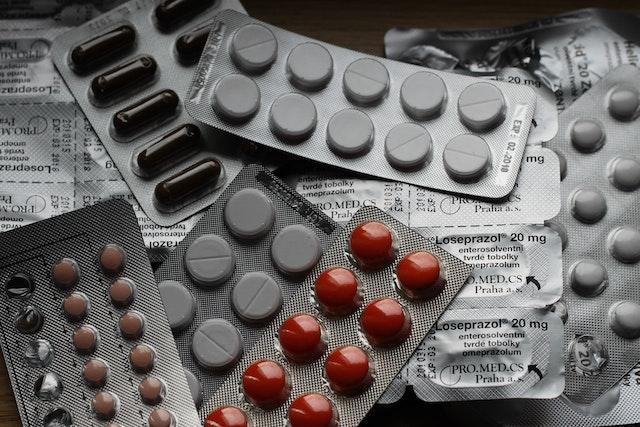How do drugs work in our body?

- posted: Jul. 19, 2023
Pharmaceuticals, also known as drugs, act on the human body through various mechanisms. When ingested, injected, or applied topically, pharmaceuticals interact with specific targets in the body to produce a desired effect.
Here are some common ways pharmaceuticals act in the human body:
1. Receptor interactions: Many drugs work by binding to specific receptors on cells, either mimicking or blocking the action of natural substances in the body. This interaction can activate or inhibit certain cellular processes, leading to therapeutic effects.
2. Enzyme inhibition: Some drugs inhibit specific enzymes in the body, which are responsible for catalyzing chemical reactions. By blocking these enzymes, drugs can alter biochemical pathways and regulate physiological processes.
3. Ion channel modulation: Certain drugs can affect the opening or closing of ion channels in cell membranes. This modulation can influence the flow of ions, such as sodium or calcium, which are crucial for nerve signaling and muscle contraction.
4. Alteration of gene expression: Some pharmaceuticals can modify gene expression, either by promoting or suppressing the activity of specific genes. This can lead to changes in protein production and cellular function.
5. Interference with biochemical pathways: Drugs can interfere with biochemical pathways involved in disease processes. By targeting specific steps in these pathways, pharmaceuticals can disrupt the progression of the disease or alleviate symptoms.
It's important to note that the specific mechanism of action varies depending on the drug and its intended purpose. Pharmaceutical development involves extensive research and testing to understand how a drug interacts with the body and to ensure its safety and efficacy.
How can we heal naturally?
The human body has a remarkable ability to heal itself naturally in many cases. While drugs can be helpful in certain situations, there are several ways to support the body's natural healing processes without relying solely on medication. Here are some strategies:
1. Rest and sleep: Giving your body adequate rest and sleep allows it to repair and regenerate tissues more effectively.
2. Proper nutrition: Consuming a balanced diet rich in vitamins, minerals, and antioxidants can provide the necessary nutrients for healing. Include foods like fruits, vegetables, whole grains, lean proteins, and healthy fats in your diet.
3. Hydration: Staying hydrated is essential for overall health and supports various bodily functions, including healing. Drink enough water throughout the day.
4. Stress management: Chronic stress can hinder the healing process. Engaging in stress-reducing activities such as meditation, deep breathing exercises, or engaging in hobbies can help promote healing.
5. Exercise: Depending on the injury or condition, specific exercises can aid in the recovery process by strengthening muscles, improving flexibility, and promoting circulation.
6. Alternative therapies: Some individuals find relief and support in alternative therapies such as acupuncture, chiropractic care, massage therapy, or herbal remedies. These approaches can complement traditional medical treatments.
It's important to note that while these strategies can support the body's natural healing processes, they may not be suitable for all conditions. It's always advisable to consult with a healthcare professional for personalized advice and guidance based on your specific situation.
Location
Find us on the map - Please click desired location below
Precise Moves Chiropractic San Francisco
3150 18th Street, Suite 334
San Francisco, CA 94110, United States
24 hour Scheduling makes it easy!
(Hours may change due to doctor availability)
Hours in the mission district, San Francisco
8-12pm
8:00 am - 12:00 pm
3:00 pm - 7:00 pm
3-6PM
8:00 am - 12:00 pm
3:00 pm - 7:00 pm
3-8PM
8:00 am - 12:00 pm
Closed
